
After his magnificent thread on British firepower @RobbieMacNiven pinged me to explain why the perception was the Continental Army firepower was better than the British. TL;DR, it wasn't because they used rifles. Here are some of the insights from my current book project. 1/25 
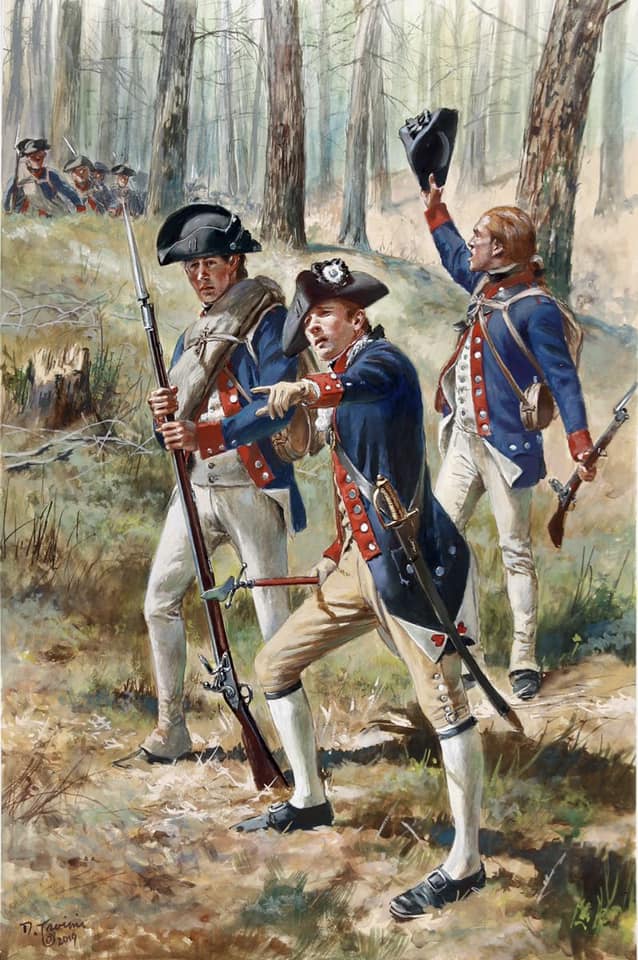
In 1777, John Adams wrote "America is universally convinced of the necessity of meeting them in the field in firm battalion—and American fire is terrible." I'm working on a book that explores how the Continental Army actually fought the war, to counteract the rifleman myth. 2/25
Most American historians write about few battles we won, and the ways the American army was unique. I wrote my dissertation on the Prussian army, and so I have a baseline for what was normal in Europe, I'm now turning to America. I argue that our army pretty European. 3/25
Most have heard the story of General Fraser's death at the hands of Timothy Murphy. Less well-known is the escape of Colonel James Webster during the southern campaign. In 1781, he was designated as a target by a picked group of 25 riflemen at the Battle of Wetzell's Mill. 4/25
"When Webster entered the stream , and was slowly fording its rocky bed , the marksmen all discharged their rifles at him in consecutive order, each certain of hitting him , yet not a ball touched him or his horse . Thirty-two discharges were made without effect.. 5/25 
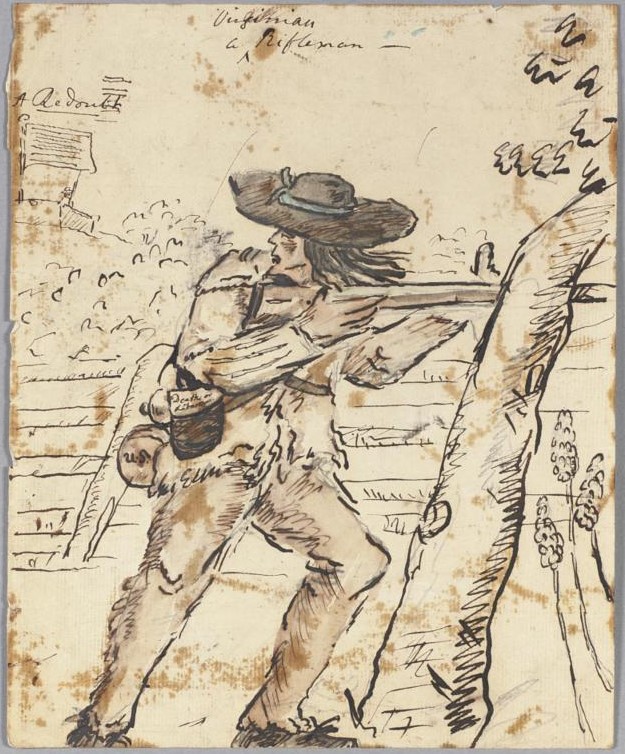
Riflemen certainly targeted officers when they could, but the slow reloading of long rifled weapons meant they were often unsuitable for use in battle, especially when the British advanced at a jog or run, as Matthew Spring has shown. 6/25
The fact is that the continental army never had a higher percentage of rifle-armed troops than 1775/1776, and Washington consistently reduced the number of riflemen in his army. 7/25
The Americans successes, particularly after 1778, particularly in the south (Cowpens, Guildford Courthouse, Eutaw Springs) are a result of our military professionalization. Prussian Baron de Steuben (he preferred "de" over "von") certainly plays a role. 8/25
American cultural traditions played a role: A French officer compared American recruits favorably with men from his own country, saying: “The American recruit is not exactly like a … farmer, he is used to arms and knows how to load and fire.” 9/25
The British found this comical, as a former British soldier living in North Carolina commented:
Inflammatory pamphlets were also distributed among the people gratis... which mentioned the amazing advantage the Americans, would have, over the British, whose Army were... 10/25
Inflammatory pamphlets were also distributed among the people gratis... which mentioned the amazing advantage the Americans, would have, over the British, whose Army were... 10/25
...of raw peasants, who know not of the use of arms, the lower class being deprived of their use by an act of Parliament, whi[le] the patriots of America, were marksmen from their youth! 11/25 
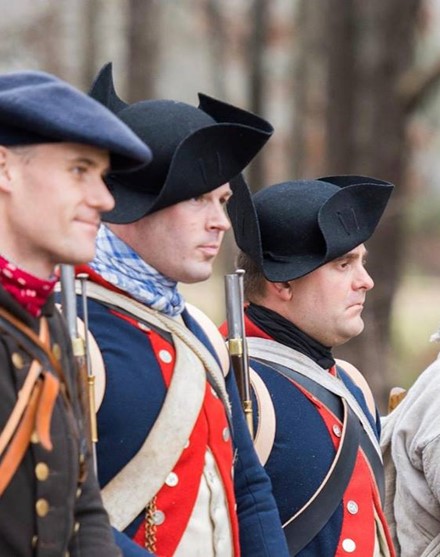
In 1777 Alexander McDougall assessed the deficiencies of both American and European recruits for the Continentals. The “recruits of this country,” were, “unaccustomed to the noise of firing in a battalion,” while “those from Europe” were “strangers in the use of firearms.” 12/25
Throughout the war, George Washington never wavered in his tactical doctrine for firepower: Hold fire until extremely close range. In June 1776, Washington advised his men: 13/25 
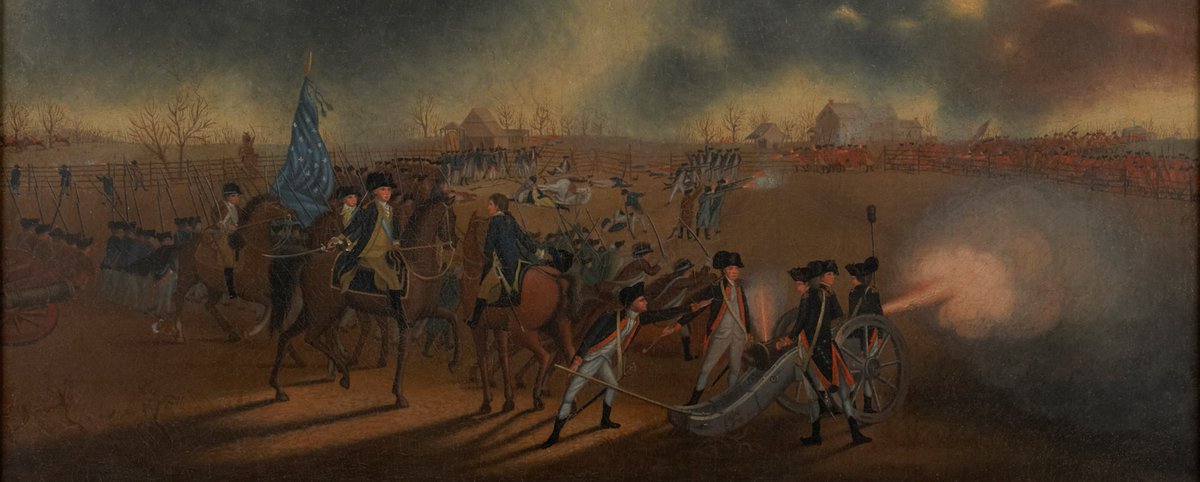
"All soldiers…will be careful not to throw away their fire. The General recommends them to load for their first... If the enemy are received with such a fire at not more than twenty- or thirty-yards distance, he [Washington] has no doubt of their being repulsed." 14/25
Charles Lee agreed, and wrote to a regiment: "Distant firing has a doubly bad effect; it encourages the enemy, and adds to the persuasion...that [we] are no match for [the British] at close fighting...Once more, stop...this childish, vicious, and scandalous practice." 15/25
In reality, American troops often fired at ranges beyond their commander’s preferred distance. In a sample of 25 firefights from the AWI, American troops fired at ranges greater than what Washington desired at 19 of them. 16/25 
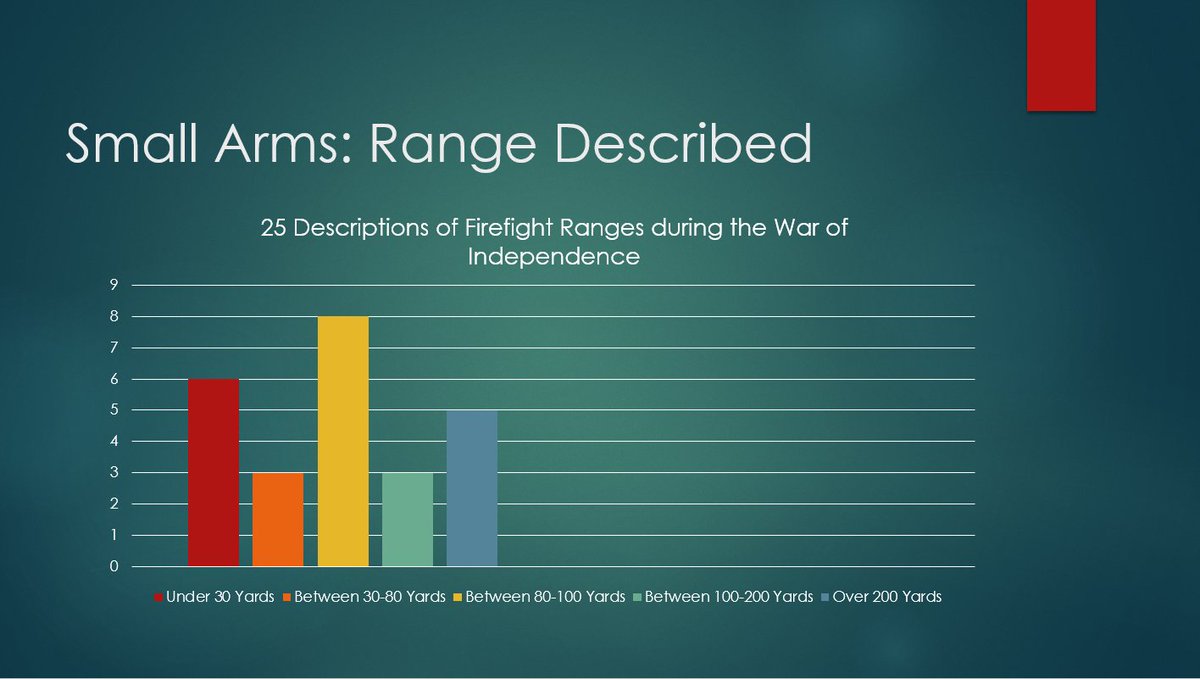
So, if Americans fired at long range (like most European armies did shorturl.at/sLPT6) why did Europeans think they were more effective? 17/25
The answer is that in most battles, the British were attacking, trying to push the Americans off the field, and so they were under fire for large amount of the time. Matthew Spring has argued British soldiers also tended to shoot high, making US troops seem more effective. 18/25
Christopher Duffy has shown that the Prussians won most of their battles during era of Frederick the Great, but because they consistently seized the offensive, they frequently suffered greater casualties than their opponents. The same is true of the British in the AWI. 19/25
So leaving perception aside, was American firepower more effective than the British? Likely, yes. Why?
Americans possessed better quality musket flints, and likely a better quality of gunpowder, as Matthew Spring has argued. 20/25
Americans possessed better quality musket flints, and likely a better quality of gunpowder, as Matthew Spring has argued. 20/25
Although the British (and Austrians, and Russians) used buckshot in the eighteenth century, Americans were particularly fond of it, and used it alongside their standard musket ball. This was also standard practice in the Russian army. shorturl.at/cpUZ6 21/25 
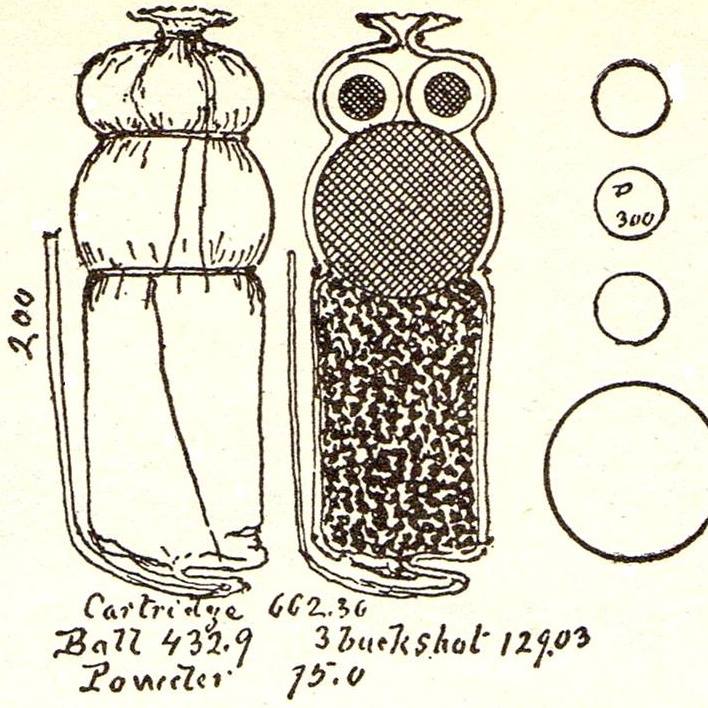
American troops frequently used linear cover to anchor their lines (fences and low stone walls). An American tactical manual from 1776 argues: "Even our fences are in some measure entrenchments, which would afford a considerable degree of shelter to our men..." 22/25
Linear obstacles gave a steady rest for American troops. At the Battle of Guildford Courthouse a British soldier noted: "their whole force had their arms... resting on a rail fence , the common partitions in America. They were taking aim with the nicest precision." 23/25 
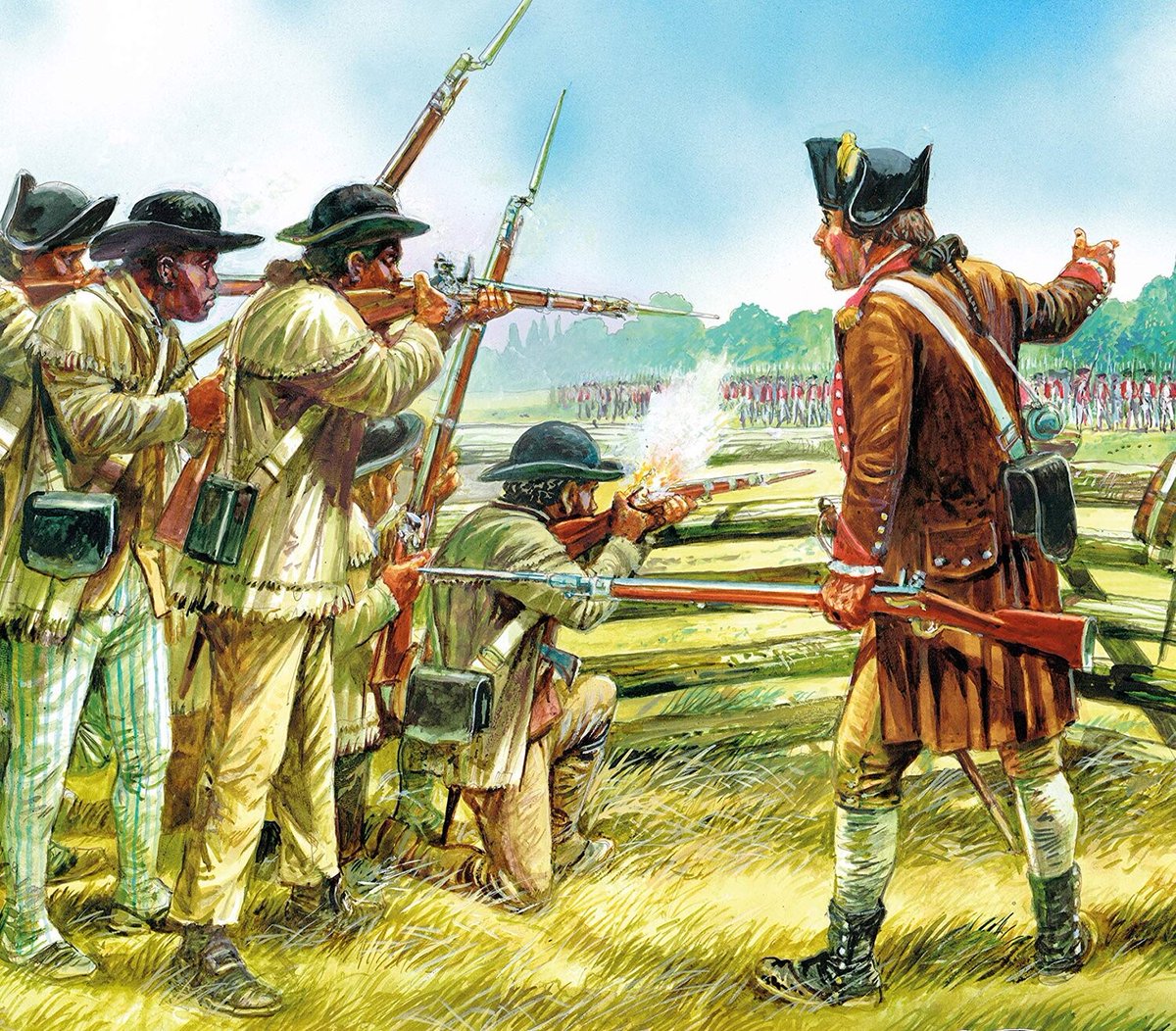
In the end, Americans won the war by becoming more European in their fighting style. Americans matched the British at battles like Monmouth, Rhode Island, Connecticut Farms, Springfield, Cowpens, Guildford Court House, and Eutaw Springs (even if they didn't always win). 24/25 
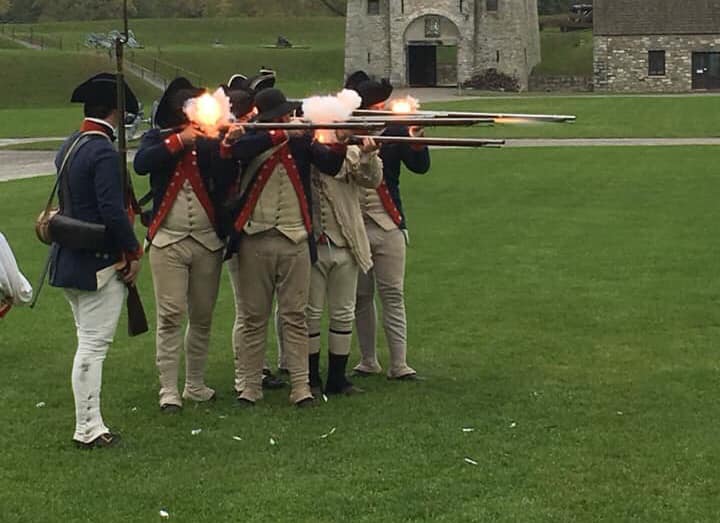
Firefights at these battles caused attrition that the British could ill afford, especially after 1778 as the war widened to a global conflict. American firepower from smoothbore muskets caused the British casualties they could not manage to replace. 25/25
• • •
Missing some Tweet in this thread? You can try to
force a refresh




